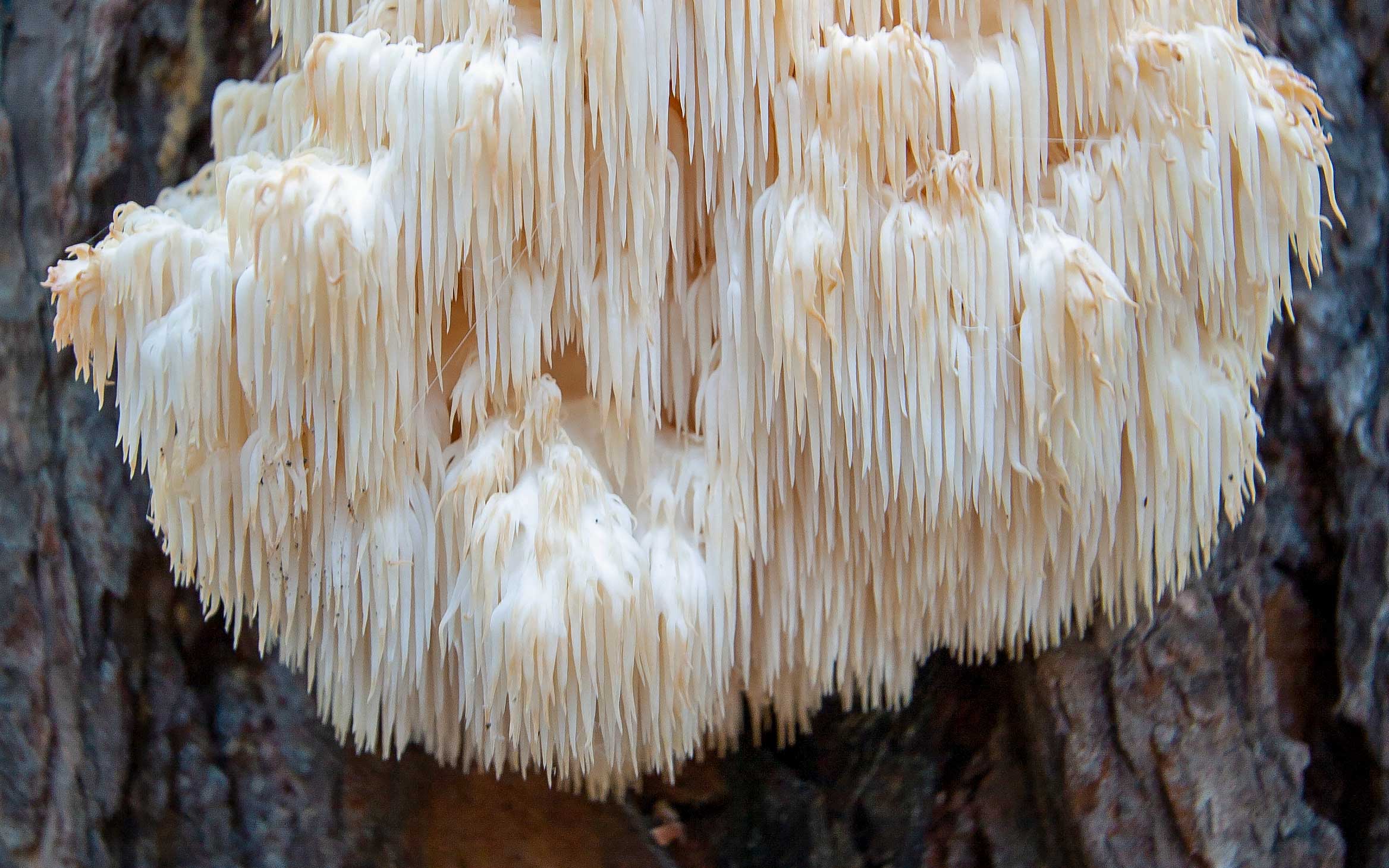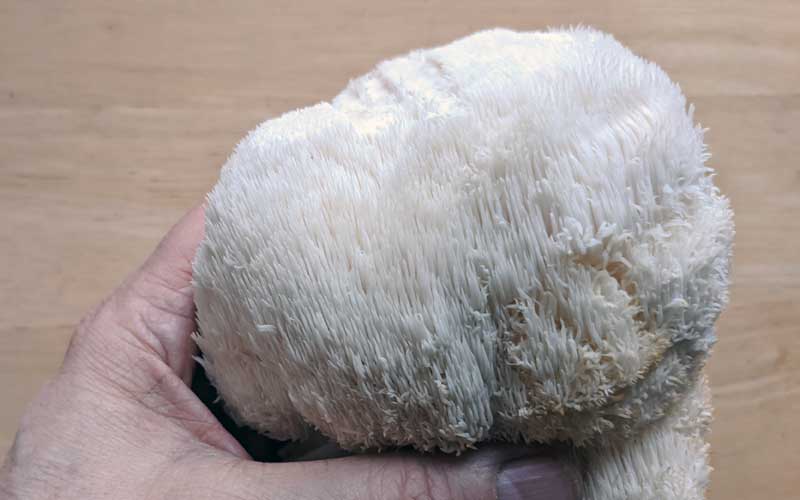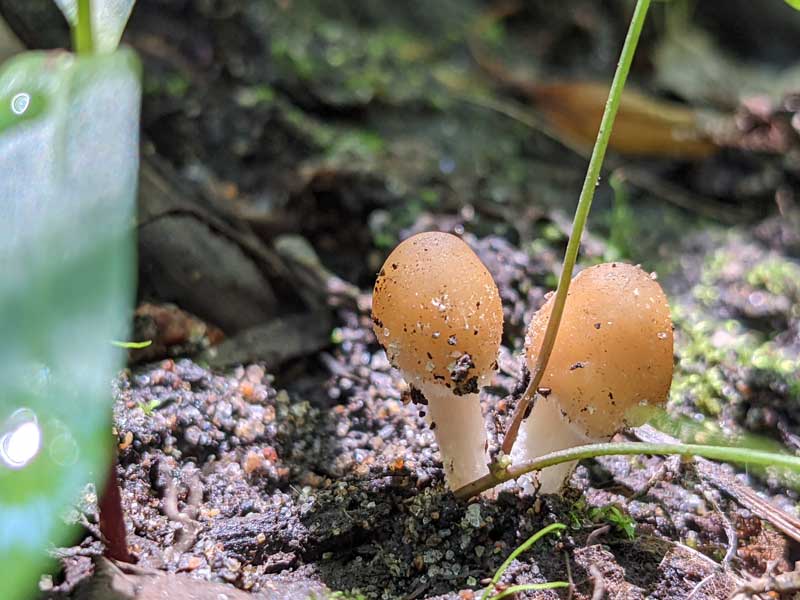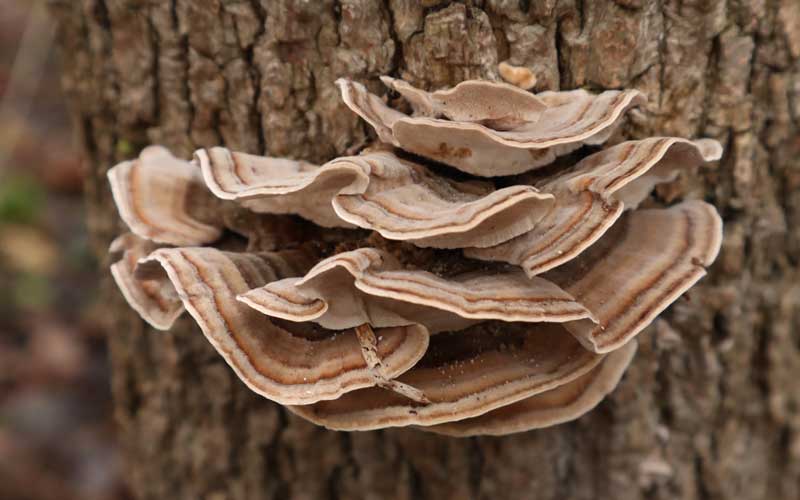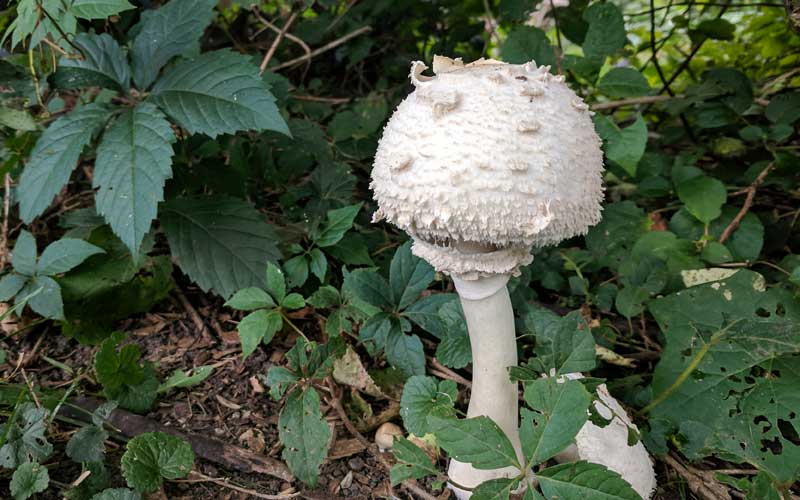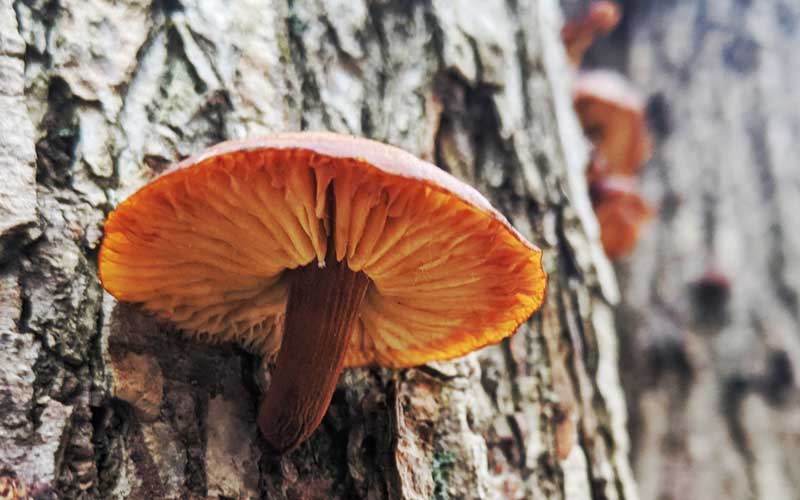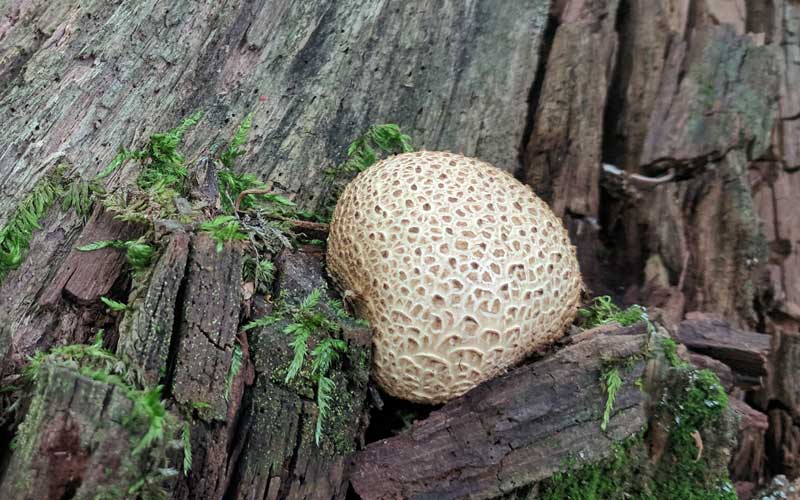Lion’s Mane: A culinary delicacy and a superfood for your brain.
Chances are if you passed Lion’s Mane growing in the woods, you wouldn’t realize it was a mushroom. It is decidedly un-mushroom-like in appearance.
A Lion’s Mane mushroom looks more like a delicate, white waterfall, frozen in time.
But a mushroom it is — one that has been used throughout the centuries as a culinary delicacy (it tastes a bit like lobster) and as a healing remedy for cognitive decline, digestive issues, and cancers.
In China, like the Reishi mushroom, Lion’s Mane was often reserved for royalty because of the belief in its ability to prevent aging and support overall health
And Lion’s Mane has quite the reputation on that front. Its health-enhancing properties are rumored to include:
- Brain support
- Anxiety relief
- Depression relief
- Cholesterol control
- Inflammation reduction
- Digestive support
- Immune system support
- Cancer protection
Like so many medically interesting mushrooms, the therapeutic qualities of Lion’s Mane are still being evaluated in studies. And, as is often the case, the early cell culture and animal studies show a lot of promise. There are also a few small clinical trials that look promising as well.

What’s under the hood… er, mane?
The reason Lion’s Mane is being explored for so many potential health benefits is because of the compounds that make up its structure.
The American Chemical Society did a review of studies exploring the chemical makeup of Lion’s Mane. They found these mushrooms contain 70 potentially bioactive compounds that may prove useful for treating neurological and other diseases in humans.
One of the standouts is beta-glucan polysaccharides. Beta glucans have anti-cancer properties. They also help to regulate your immune system and cholesterol levels.
Another is erinacines. In cell cultures, erinacines stimulated the expression of nerve growth factor. That means they may help your body make more of what it needs to protect and regenerate neurons — more and healthier neurons mean better cognitive function.
Erinacines also help protect existing neurons from damage. Erinacines are small enough to pass through the blood-brain barrier, which means their therapeutic potential for treating brain health issues is pretty exciting.
But what do the studies say at this point?
Lion’s Mane and your brain.
The evidence for the various health benefits of Lion’s Mane is a work in progress.
Most studies conducted so far have been done in test tubes or on rodents.
Let’s start with one of the animal studies. In this study, researchers gave beta-amyloid injections to mice, a method of inducing Alzheimer’s disease. Mice in the study group also received Lion’s Mane mushroom as part of their diet for 23 days. Those mice didn’t lose their short-term memory or visual recognition memory, as mice suffering from Alzheimer’s normally do.
In another study, scientists explored how Lion’s Mane protects mice brains from Alzheimer’s disease. They discovered that the active compounds in Lion’s Mane slowed the build-up of beta-amyloid in the brain. In addition, Lion’s Mane also helped with the processing of insulin (Alzheimer’s is often linked to insulin resistance, so this is important) and stimulated the growth of new neurons in the hippocampus. That’s impressive!
Researchers have not yet done clinical studies to see if Lion’s Mane has the same protective effects against Alzheimer’s disease in a human brain. There is, however, a clinical study exploring the effect of Lion’s Mane on cognitive function.
It was a small, controlled, double-blind study looking into whether or not supplementing with Lion’s Mane would improve cognitive function in people showing signs of mild decline. The supplement group took 250 milligrams of powdered Lion’s Mane three times a day. Over the course of sixteen weeks, their scores on cognitive tests improved well above those in the control group. Four weeks after discontinuing the supplements, their scores began to fall again.
The evidence that Lion’s Mane supports brain health and cognitive function while protecting against Alzheimer’s disease is still in the early stages. But so far, what researchers are discovering is exciting stuff. And, of course, there are many other natural foods that support optimum brain health.
Supporting your heart health with mushrooms.
The active compounds in Lion’s Mane also appear to have a beneficial effect on cardiovascular health… which isn’t surprising since what’s good for the heart is good for the brain and vice versa.
Scientists looked at the effect of compounds derived from Lion’s Mane on rats with hyperlipidemia, meaning they had high levels of bad cholesterol and triglycerides and low levels of good cholesterol. The researchers even went so far as to compare Lion’s Mane with statins used to treat high cholesterol.
The rats that received an extract derived from Lion’s Mane had even better results than rats that received a statin for treatment. Their HDL levels were higher, and their LDL levels were lower. Statins were a little more effective at lowering triglycerides, but the difference was small.
Lowering inflammation and oxidative stress.
Chronic low-level Inflammation and high levels of oxidative stress age your body. They contribute to all sorts of chronic diseases and generally lead to an overall decline in health and function.
So, natural inflammation and oxidation fighters are always welcome. And evidence suggests that Lion’s Mane performs well in this area.
In yet another study on rodents, scientists looked at the effects of Lion’s Mane compounds on inflammation markers after a stroke. They found that Lion’s Mane effectively reduced three common markers of inflammation, and in the process helped to protect neurons from injury.
And in a study on mice with inflammatory bowel disease, Lion’s Mane also reduced the production of inflammation markers. But it did more than that. It also adjusted the production of a number of antioxidants, which helped to protect colon cells from oxidative stress.
All that and safe, too…
Since Lion’s Mane is a food, it’s not surprising that it has few side effects.
In fact, one of the standout things about most of these studies is how low a dose of Lion’s Mane (or its compounds) was needed to provide protection against damage from Alzheimer’s, cholesterol, or inflammation.
That being said, some people are allergic to Lion’s Mane, so if you’re sensitive to mushrooms, proceed with caution… if you proceed at all.
You can find Lion’s Mane or Lion’s Mane supplements online. If you’re concerned about your brain, your heart, or the diseases associated with inflammation, this is a supplement worth trying. And if you’re interested in adding a new superfood to your cooking rotation, Lion’s Mane is a definite win.

Related topics:
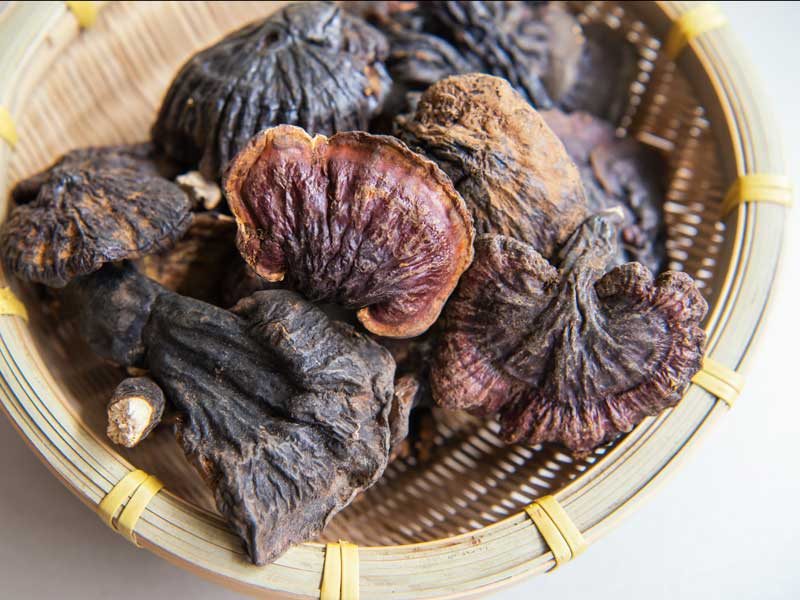
Medicinal mushrooms have been used by healers for thousands of years.
Medicinal mushrooms and fungi offer a variety of health benefits, many of them tied to supporting your natural immune system. Read the full article...
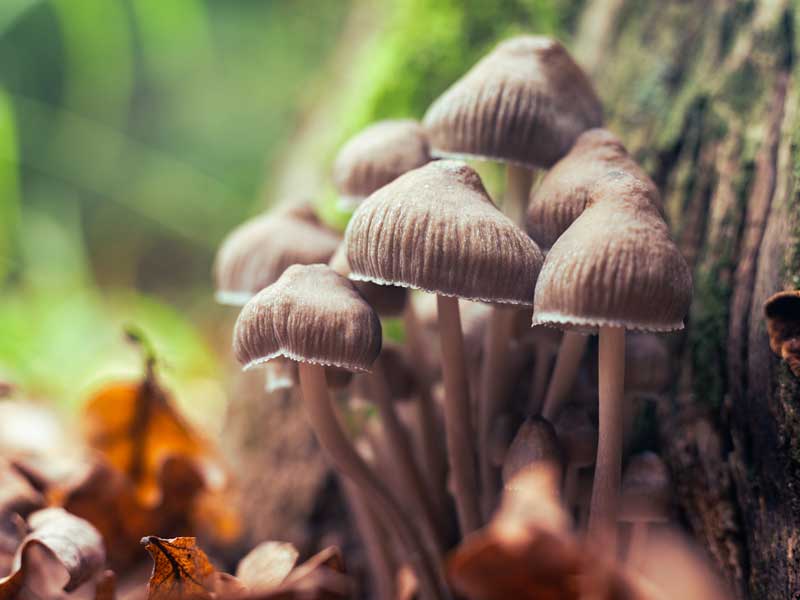
A brief history of magic mushrooms, and how they can improve our lives.
Magic mushrooms have played a role in the spiritual, psychological and mental health of people for millennia. Read the full article...
